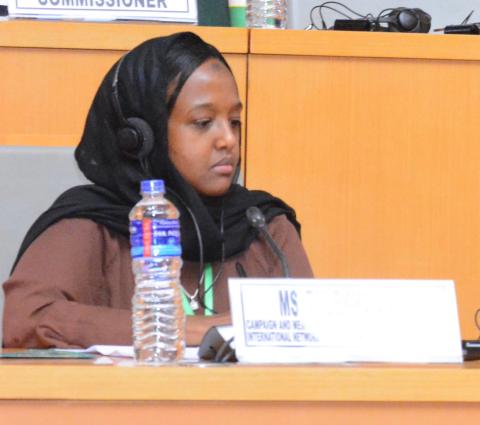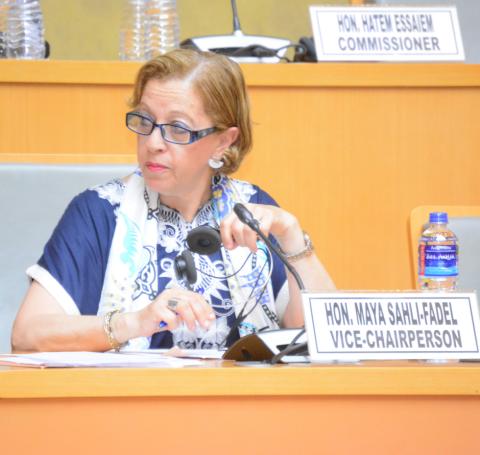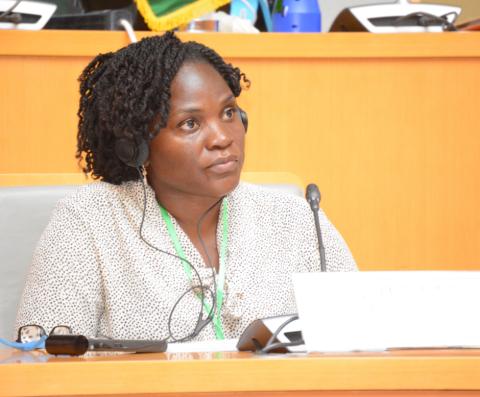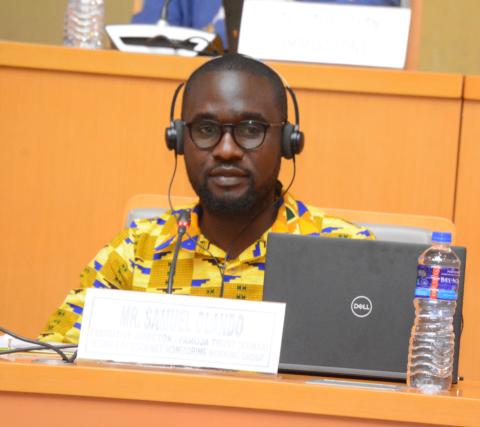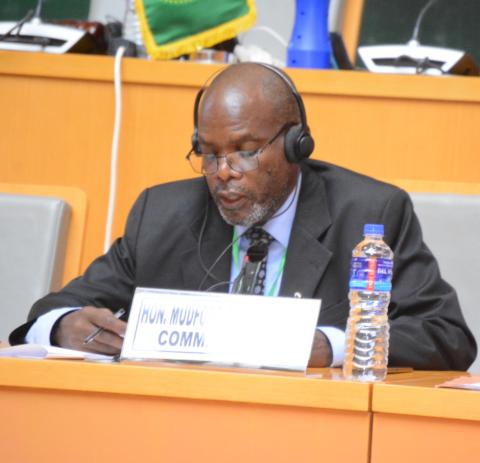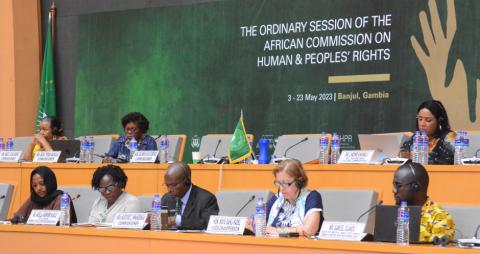
Leveraging Data for Meaningful Progress Towards Economic, Social, and Cultural Rights
"Data is more than numbers and figures." – Zulekha Amin, ESCR-Net Campaign and Membership Facilitator for Sub-Saharan Africa
On May 10th, ESCR-Net held a panel event at the 75th ordinary session of the African Commission on Human and Peoples’ Rights (ACHPR), centered around the critical role of data in advancing human rights. Organized jointly with the ECOSOC Working Group of the ACHPR, along with our members Initiative for Social and Economic Rights - ISER (Uganda) and Pamoja Trust (Kenya), the panel focused on the principles and recommendations outlined in the Collective Position on Data and ESCR developed by our members. The objective was to foster discussions on how the Commission could work with States to improve the production of data to fulfill human rights.
"Data is more than numbers and figures”, said Zulekha Amin, ESCR-Net Campaign and Membership Facilitator for Sub-Saharan Africa, emphasizing the significance of data quality and relevance. Amin introduced the five principles for a human rights-based approach to data from ESCR-Net's Collective Position: equality and non-discrimination, high-quality data, participation, transparency and accessibility of information, and privacy. Amin underscored the role of states in producing accurate, representative, and policy-relevant data while also emphasizing the importance of regulating the private sector to protect human rights. Additionally, the video animation on data, “Make Human Rights Count”, developed by members of the Network was launched during the event.
Maya Sahli Fadel, Vice Chair of the ACHPR, emphasized the crucial role of data, particularly when disaggregated, in monitoring and implementing obligations set forth in the African Charter. Commissioner Zackaria Mwandenga, Chairperson of the ECOSOC Working Group, provided an overview of the Commission’s efforts to guide states in generating relevant data on economic, social and cultural righst,including the development of guidelines such as the Tunis Reporting Guidelines, as well as the adoption of resolutions and recommendations to states during their periodic reports to the Commission.
Angela Nabwowe Kasule, Director of ISER and representative in Uganda’s SDG Data Technical Working Group, drew attention to the discriminatory impacts of digital systems on groups such as migrants and stateless people. “Many African countries are using digital systems but there are challenges with how the data for these ID systems is collected, managed and analyzed, leading to the exclusion of many people [from public services].” She also underscores the gaps in official data about specific groups.“Individuals may experience discrimination and inequality along multiple axes, for example, gender and disability. Analyzing data at the subgroup level allows for the understanding of multiple and intersecting inequalities […] However, there is no consistency with how states produce this data.”
Samuel Olando, Director of Pamoja Trust, emphasized the need to democratize data by creating opportunities for communities’ participation in data collection and decision-making processes. “In most occasions, citizens-led data is not legitimized”, he said, urging states to ensure community data is not seen as confrontational but as evidence generated to provide a platform for dialogue and solutions that recognize communities’ experiences.” For example, people working in the informal sector are often left out of government statistics, their contributions to the development of the country are invisibilized and their needs and priorities are not reflected in policy-making.
During the subsequent discussion, several Commissioners echoed the points raised, particularly regarding the lack of disaggregated data related to marginalized groups such as prisoners and indigenous people, of qualitative data that sheds a light on people’s lived experiences,and the barriers they face in obtaining this data from states.
“The subject generated a lot of interest from the different commissioners. From their different reports, they have been raising the issue of lack of data from states as a major challenge, so this is a timely intervention,” said Angella Nabwowe.
In his closing remarks, Commissioner Mwandenga said that the panel marked the beginning of a process that should lead to states including better data, including disaggregated data, in their reports to the Commission.
We look forward to continuing working with the Commission and particularly the ECOSOC Working Group to strengthen states’ data practices.

